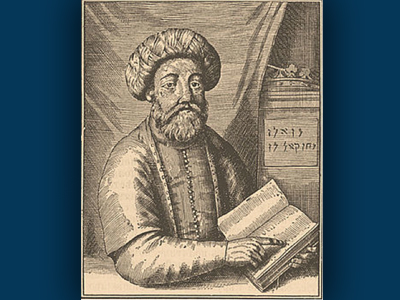May 31, 1665
Shabbetai Zevi, a brilliant biblical scholar with a history of mental illness, declares himself the Messiah on the 17th of Sivan.
Zevi was born Aug. 1, 1626, in Smyrna (Izmir), Turkey. He showed signs of mental instability early in life, causing unpredictable mood swings from extreme depression to euphoria. During his bouts of mania, he was prone to violate Jewish law by stating the name of God aloud, an action that was taken seriously by his community. It was during these episodes that Zevi first began to refer to himself as the Messiah, but little attention was paid to these “revelations.” Nonetheless, he was eventually banished from Smyrna for his repeated violations of Jewish law.
Zevi spent the next several years wandering throughout the Ottoman heartland of Turkey and Greece and studying Jewish mysticism in hopes of curing his mental illness. He settled in Jerusalem in 1662. In 1663 he was sent as an emissary to Cairo. After living in Egypt and marrying for the third time, he went to Gaza upon hearing of a man who could give individuals the mystical formulas that their souls required. The man, known as Nathan of Gaza, did not help Zevi to find spiritual peace. Instead, he convinced Zevi of his anointed status, leading to his public declaration of being the Messiah.
After his announcement, Zevi travels to Syria and Turkey and attracts many supporters, including many prominent religious leaders. His influence exceeds the borders of the Sephardi world; many Ashkenazi Jews in Europe, devastated by violence, poverty and disease, become enthralled with his messianic vision.
In 1666 he is arrested by Ottoman officials while on his way to Constantinople. Upon his arrest, he is given the choice to die or convert to Islam. He chooses conversion.
His conversion has a devastating effect on his many followers. Most return to traditional Judaism, but others continue to look to self-proclaimed messiahs as saviors for Jewish suffering and as a prelude for return to the Land of Israel.








